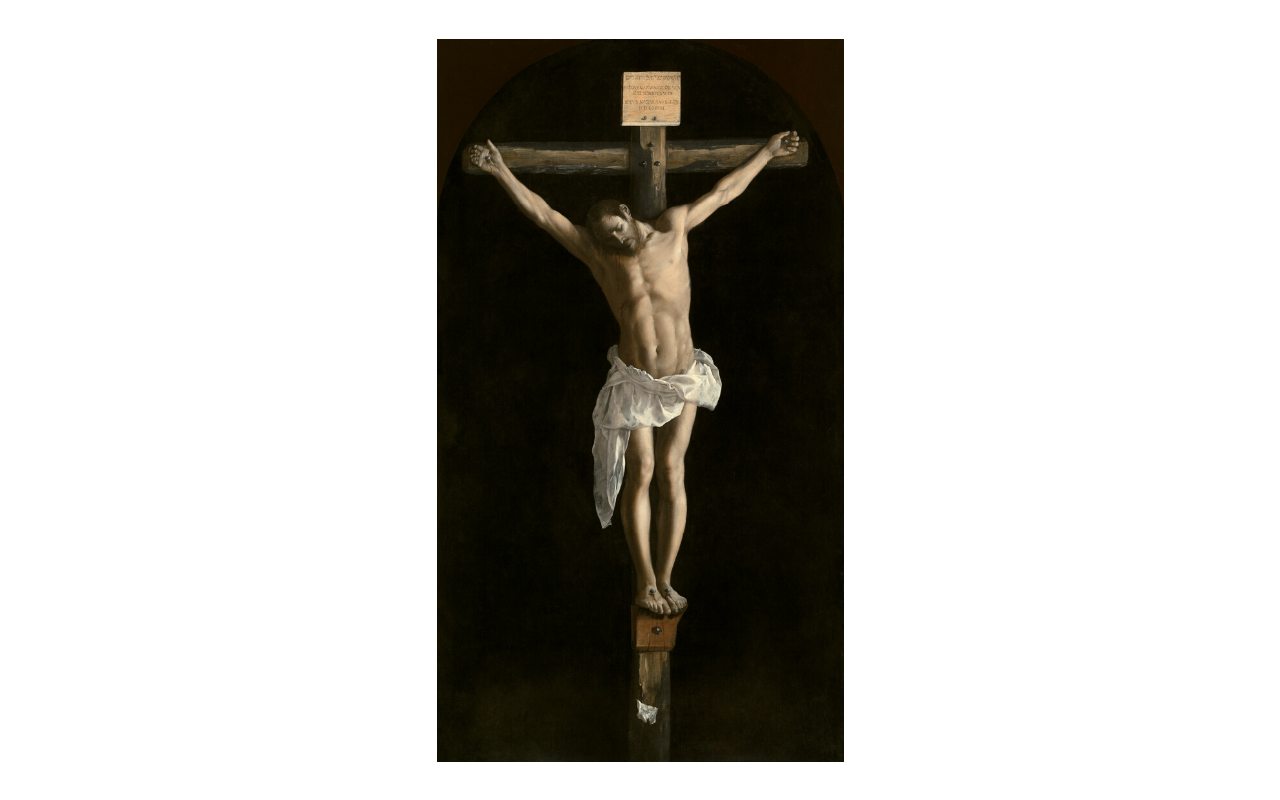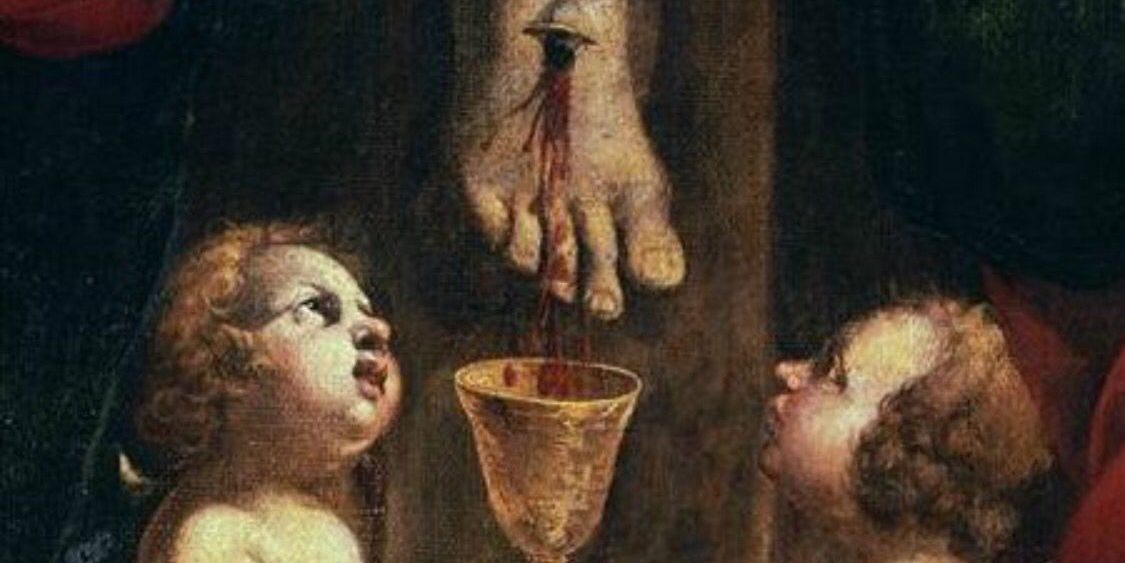“For the life of a creature is in the blood, and I have given it to you to make atonement for yourselves on the altar; it is the blood that makes atonement for one’s life”
Leviticus 17:11
“In fact, the law requires that nearly everything be cleansed with blood, and without the shedding of blood there is no forgiveness”
Hebrews 9:22
“And He Himself is the propitiation for our sins, and not for ours only but also for the whole world”
1 John 2:2
_____________________________________________________
“And He Himself is the propitiation for our sins”.... but how is he? How is this “blood of the new covenant” that is “shed for many for the forgiveness of sins”¹ a blood capable of forgiving sin? How can we supposedly stand white-linen robed before the throne of God and the shade of his branched blessings without bracing ourselves for justice? How are we sanctified by blood, specifically the blood of another? How can we begin to understand the promise that “by Him everyone who believes is declared right from all sins”². What does “belief” or “faith” in his name, his blood, his death, his resurrection even mean, and how does it declare us right?

“These are they who have come out of the great tribulation; they have washed their robes and made them white in the blood of the Lamb”
Revelation 7:14
Through his sacrifice, through a vision of his blood we are mysteriously struck. Struck not by the miraculous or supernatural, but by mundanity most meek. We are pierced by the blood of the innocent. The blood of an innocent, powerful, authoritative, selfless man who has let from his wounds his life and the blood of innocence past, present, and future. We see bloodshed and for the first we not only feel sadness at the injustice, a motherly empathy all possesses, but an additional expelling of ourselves from ourselves. To believe in Jesus is simply to be transformed by Jesus and then of course you believe because you are it.
“It is harder to believe in the death than the resurrection”

“The lamp of the body is the eye. If therefore your eye is good, your whole body will be full of light”
Matthew 6:22
In other words, we realize that it should be us upon the cross, and that we in our vanity have nailed him, and all innocence, there continually. In realizing we are the guilty, we are elevated outside ourselves to where we can see our sin (fallenness, vanity, heaviness, desire, etc), and in seeing it are cleansed such that we may now live above ourselves in Christ sinless. Able to imitate him through the same spirit that touched us with “belief” in his death: to be saved, sanctified, and sinless. Without blood we can never see through veil of our heaviness. We continue to live improperly: desirous at the expense of the other³. It was the blood that cleansed me and the blood that continues to. The immediacy of it all.
We oft imagine the sacrifices of Leviticus as an temporal economy. Blood of bulls and goats a means of exchange weighed upon the bronze scales of a distant anthropomorphic God, who in exchange, will scratch off some equivalent sin from his ledgered book of life. We see sacrifice as taking time to take affect, even if just an instant, but a more panentheistic approach is required. The propitiation of blood is as immediate as is the very presence of the blood in the world. The vision of the blood—whether seen in the moment or written word or annals of memory it makes no difference— the very atonement.
“Nor did He enter heaven to offer Himself again and again, as the high priest enters the Most Holy Place every year with blood that is not his own. Otherwise, Christ would have had to suffer repeatedly since the foundation of the world. But now He has appeared once for all at the end of the ages to do away with sin by the sacrifice of Himself.”
Hebrews 9:25-26
“By Him everyone who believes is declared right from all sins from which you were not able to be declared right by the Torah of Moses”
Acts 13:29
Paul’s statements lead one to ask what makes His blood as propitiation superior to the sacrifices prescribed by Moses. The answer is human.
Why blood for sin? Why not penance or time or works? Because the life is in the blood and life is work and care and sustaining and its shedding leading to death is a font of fatal rubies most visceral. Because we have never been able to see our own folly and the proper sinless path without it being spilt.

“Has the Lord as great delight in burnt offerings and sacrifices,
As in obeying the voice of the Lord?
Behold, to obey is better than sacrifice,
And to heed than the fat of rams.
For rebellion is as the sin of witchcraft,
And stubbornness is as iniquity and idolatry.
Because you have rejected the word of the Lord,
He also has rejected you from being king.”
1 Samuel 15:22-23
The blood of bulls and goats of the Israelite’s sin and trespass offerings function the same as Christ’s blood although their utility is ever fleeting. To take an unblemished animals life as atonement for one’s sin is not a light matter (one must imagine the Israelites meek) and the pain of bloodshed brings an instantaneously elevated perspective through which the gravity of sin may be seen such that repentance can grow in its place. This was the intended spirit of such sacrifice even if oft abused by the Israeli reprobate drawing (preparing) the goat before the sin.
In the vision of blood, our transubstantiation knows no intermediary. We are made right by nothing other than the Spirit’s infusion into experience itself. That is to say the divine law of an eye for an eye observed all the way back to the blood of the animals shed for the coverings of Eve and Adam should be see not as some arbitrary law of a bloodthirsty God but as a necessary guardrail/net upon which the sinners must eventually fall to be redeemed. Blood must be shed for bloodshed to cease: this works only if hearts are meek.
“For You do not desire sacrifice, or else I would give it;
You do not delight in burnt offering.
The sacrifices of God are a broken spirit,
A broken and a contrite heart—
These, O God, You will not despise.”
Psalm 51:16-17
“We must not feel guilty and we cannot say I won’t do it again and so we say I don’t want to do it again and by grace mean it”
The immediacy of it all. Maybe this accounts for miraculous healings by the blood by the belief by the resurrection you’ve always been healed we just had to see it. The blood is a confession of ourselves and confession is resolution to a new self even born of filth free from the weight of conscience and chains of indeterminacy. You come back to yourself knowing you had lost yourself and what took you was not yourself and to be taken back to yourself as such is perfect peace— God. A God who cannot help but be glorified and kept near.

Once you know how good it really is, so good that the exact opposite of what should have happened has happened so that what should happen in you has been freed to happen, anything less than Christ is to deign. The blood revealed it like rose curtains finally drawn for the show to start. What living Christ is for you is between you and the man with your true name written on the whitestone he holds under the morning star. To remember your vanities and your selfish desires as bad is to become the remembrance of the good. Yet we were so bad, so cold, we could only begin to see the “good” through another’s death. In such a death, we have all been afforded the opportunity to overcome ourselves to be ourselves, to be good and true stewards and lovers in the selfless death of the good. The ransom is always being paid and all of reality is in a constant state of crucifixion until you give yourself back the same.
This is just the beginning, this is just the eternal memory of the living mustard seed. Realizing, its grace to realize this, that it's all grace⁵ is being born of the spirit or “born again" as it is colloquially called. But that's just the beginning, just birth, and its good to remember birth to empty yourself of yourself, but to remember it and not grace others as you have been graced is rebellion.
At birth we didn’t need blood to know, with blood we don’t need to “believe” in the resurrection, we live it.

Citations:
[1] Matt 26:28
[2] Acts 13:29
[3] Girard’s “Evolution and Conversion” may be helpful in understanding desire here
[4] John 3
[5] Unmerited Favor, Existence as grace
Further exploration: An investigation of the patriarchs/prophets/sages/holy men of the OT and other traditions in relation to the Christian polemic of “there is no other name under heaven by which man may be saved” would be a fruitful one.
